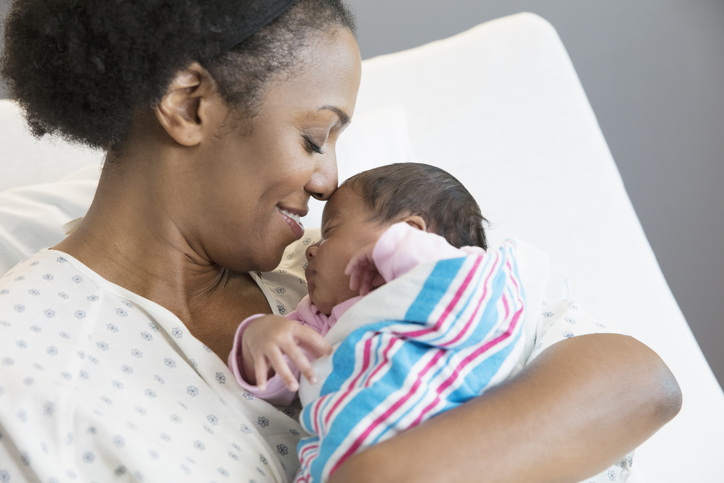
Source: KidStock / Getty
Black women are over three times more likely to die during childbirth and postpartum than white women.
When supported by a doula, Black women saw significantly greater birth outcomes.
But there are a tremendous number of misconceptions about the practice and history of doulas and midwifery. The hosts of Black Health 365, Jackie Paige and Britt Daniels, get into it all in this episode.
On this special episode that’s here just in time for Black Women’s History Month, Jackie and Britt welcome Imani Byers to the podcast. Imani is a full spectrum doula, social worker and founder of Your Rebyrth Tribe Perinatal Wellness Agency. She knows everything there is to know about doulas and midwives – some of the most critical players in the pregnancy, birthing and postpartum process.
First Thing’s First: What Is A Doula Or A Midwife?

Source: kali9 / Getty
Before getting into the nitty gritty, Imani gives a brief description of the commonalities and differences between a midwife and a doula.
A doula is “A professional trained in supporting birthing bodies during labor, fertility, and postpartum,” says Imani. They offer both emotional and physical support. Imani always tells her clients, “Please stay away from Google. You have a doula for that.”
A midwife offers clinical support to both the mother and, once born, the baby. Midwives are there to ensure a safe birth. There are three tiers of midwives, explains Imani, including certified nurse practitioners, certified professional midwives and traditional midwives who don’t have a certification, but work through an apprenticeship.









